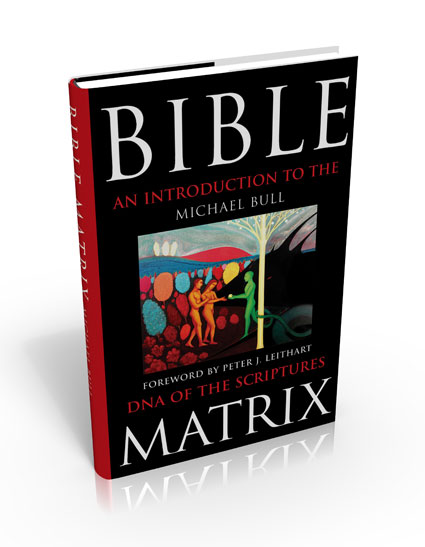Apr
3
2010
“To be postmillennial is to be committed to the claim that the state of creation, over time and in time, will be recognizably as the prophets predict…”

Peter Leithart gets down to the nuts and bolts of postmillennialism:
I am postmillennial, and postmils like to speculate about the long view. We like to ask questions like: What is the church and world going to be like after another several millennia of evangelism, baptism, teaching, discipline, Eucharistic merriment? What kind of political system will exist? How will the church worship? What will the economy look like? What kinds of technological advances will be retained and which will be dispensed with as incompatible with God’s commandments?
Continue reading
Comments Off | tags: Eschatology, Peter Leithart, Postmillennialism | posted in Quotes
Feb
25
2010

From Peter Leithart’s blog:
Jay McInerny reviews First Chapter: How to Talk About Books You Haven’t Read by Pierre Bayard in the NYT. He says in part:
Continue reading
Comments Off | tags: Culture, Peter Leithart | posted in Christian Life, Quotes
Feb
19
2010

or Smells Like Holy Spirit
A friend recently gave me a unique gift. With some difficulty and great expense, he sourced the ingredients for the anointing oil of the Aaronic priesthood and I was the grateful recipient of a small, blue vial.
The scent of the oil is intoxicating. You breathe it in and in some strange way you can “taste” it as it goes down. It is extremely complex and yet a single fragrance. Continue reading
Comments Off | tags: Ark of the Covenant, Atonement, Covenant Theology, Creation Week, David, Esther, Ezekiel, Genesis, Greater Eve, Incense Altar, James Jordan, Peter Leithart, Resurrection, Saul, Tabernacle | posted in Biblical Theology, Quotes, The Last Days, The Restoration Era
Feb
12
2010
Dr Leithart has very kindly written a foreword for Bible Matrix, which is a bare-bones-basic version of Totus Christus. It was a big ask, considering we have never met, but he has written the following. I hope his brave endorsement encourages you to look out for it when it becomes available. Stay tuned for updates.

Continue reading
6 comments | tags: Bible Matrix, Peter Leithart | posted in Biblical Theology
Feb
1
2010

Peter Leithart writes:
Solomon’s temple had windows, but they are mentioned only once, in 1 Kings 6:4. Ezekiel’s description of the visionary temple uses the word “window” twelve times.
Continue reading
Comments Off | tags: Ezekiel's Temple, oikoumene, Peter Leithart | posted in Biblical Theology, The Last Days, The Restoration Era
Jan
16
2010

Then He said, “Do not draw near this place. Take your sandals off your feet, for the place where you stand is holy ground.” Exodus 3:5
A sacrifice is literally a nearbringing. James Jordan suggests that instead of sacrifice or offering, a better translation of the word qorban would be “nearbringing”:
“The English “sacrifice” tends to connote the idea of giving something up for someone else. That has little if anything to do with qorban. “Offering” tends to connote a gift, which again has nothing to do with qorban. The word means to draw near, to get into close relationship with someone, and it is used only in relationship to God. We do not worship God by giving Him anything, for He needs nothing. We do not worship God by giving up anything good, for He is the one who has given us all good things. We worship God by drawing near to Him.” [1]
The first nearbringing was the marriage Covenant between Adam and Eve. There was blood when Adam was “divided” so that Eve might be “constructed.” [2] And we can assume that when Adam and Eve were first physically united there was also blood.
Continue reading
Comments Off | tags: Genesis, James Jordan, Peter Leithart | posted in Biblical Theology, Quotes, The Last Days
Jan
15
2010

6. Jesus Christ was not judge of the quick and the dead, because (according to preterists) He only judged the dead.
Jesus judged between the living and the dead in AD70. The true bride and the false bride were bodies of living people. Of course, part of the true bride was the Old Covenant saints (those “under the Altar”) who were dead.
Continue reading
4 comments | tags: Atonement, Daniel, David, High Priest, James Jordan, Leviticus, Peter Leithart, Postmillennialism, Saul, Temple | posted in Against Hyperpreterism, Biblical Theology
Jan
10
2010

or Being a Truly Impure Thinker
“If you love me, you will keep my commandments.” John 14:15
NOTE: THIS POST HAS BEEN REMIXED AND INCLUDED IN GOD’S KITCHEN.
You must be logged in to see the rest of this post.
Join now for a year for $15!
Peter Leithart wrote this week:
How do we know things? Experimentation, deduction, observation?
In Genesis, knowledge is first associated with two things – with food and with sex. There is a tree of the knowledge of good and evil, whose fruit opens the eyes of Adam and Eve so that they perceive that they are naked. Then Adam knows his wife and she conceives Cain.
If we want a strictly biblical answer: Knowledge is eating. Knowledge is sex.
Continue reading
Comments Off | tags: Add new tag, Communion, Eugen Rosenstock-Huessy, Food laws, Maturity, Moses, Peter Leithart, Solomon, Wisdom | posted in Biblical Theology, Christian Life
Jan
8
2010

[Link to parts 1 and 2.]
In Revelation 4-5, Jesus ascends and opens the New Covenant scroll (Firstfruits). As Moses, He then opens the Law to Israel (Pentecost). These open seals lead into the partial judgments of the Trumpets. They summon a new generation of Israel and warn the old. The last trumpet, as in Joshua, is itself “seven thunders” (John’s “Little Book”) that bring total destruction to the defiant city, in this case, Herod’s Babylon (Atonement). This is the last trumpet Paul referred to.[1]
Continue reading
Comments Off | tags: Elijah, Feasts, James Jordan, Moses, Peter Leithart, Revelation | posted in Biblical Theology, The Last Days
Jan
4
2010
or Collision II

In the movie Collision, Christopher Hitchens relies a lot on the idea of a moral consensus, the idea that humanity has an innate sense of what’s right and what’s wrong and that we all agree on the basics. Is there any merit in this assumption? Or is Hitchens assuming that the benefits of Christianity are the result of human reason? Peter Leithart argues that Calvin, as an heir of 1200 years of Christendom, made exactly this mistake.
(I present below just the head and tail of Dr Leithart’s argument. I highly recommend getting a hold of the essay and reading his full argument and evidences.)
Excerpts from Did Plato Read Moses?
Peter Leithart on Middle Grace and Moral Consensus
The Bible presents a bleak view of the moral potential of the natural man. In this respect it seems to fly in the face of the facts. What are we to make of the empirical phenomenon of the “good pagan”?
Continue reading
10 comments | tags: C. S. Lewis, Calvin, Christopher Hitchens, Church History, Peter Leithart | posted in Apologetics, Biblical Theology, Ethics



































